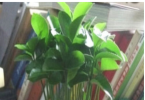
Slugs are a common nuisance in gardens and yards, often causing damage to plants and crops. Dealing with these slimy pests can be frustrating, but there are effective methods to eradicate them and prevent their return. By implementing a combination of natural remedies and preventative measures, you can say goodbye to pesky slugs for good.
First and foremost, one of the most effective ways to control slugs is by creating barriers around your plants. This can be achieved by using materials such as copper tape or diatomaceous earth, which slugs are reluctant to cross due to their abrasive texture. Additionally, placing physical barriers such as eggshells or gravel around vulnerable plants can deter slugs from reaching them.
Another natural method for controlling slugs is by introducing predators into your garden ecosystem. Creatures such as frogs, toads, and certain bird species are known to feed on slugs and can help keep their population in check. Encouraging these natural predators to inhabit your garden by providing suitable habitats and water sources can contribute to long-term slug control.
Beer traps are a popular and effective way to lure and trap slugs. Simply bury a shallow container filled with beer in the soil near affected plants. Slugs are attracted to the scent of beer, crawl into the container, and drown. Regularly emptying and replenishing the beer traps will ensure continued effectiveness in controlling slug populations.
In addition to physical barriers and natural predators, cultural practices can also play a role in slug management. Avoiding overwatering and removing excess vegetation and debris from your garden can create a less hospitable environment for slugs. By keeping your garden clean and tidy, you can minimize hiding places and breeding grounds for these pests.
Certain plants are known to repel slugs due to their scent or taste. Incorporating slug-resistant plants such as lavender, rosemary, and sage into your garden can help deter slugs from feeding on your prized plants. Additionally, interplanting susceptible crops with repellent plants can provide an extra layer of protection against slug damage.
Chemical pesticides should be used as a last resort for slug control, as they can have harmful effects on the environment and non-target organisms. However, if natural methods prove ineffective and the slug infestation is severe, targeted applications of iron phosphate-based slug baits can be considered. These baits are less toxic to beneficial insects and wildlife compared to traditional chemical pesticides.
Regular monitoring of your garden for signs of slug activity is essential for early detection and intervention. Inspect plants for chewed leaves, slime trails, and the presence of slugs during dusk and dawn when they are most active. By identifying and addressing slug infestations early on, you can prevent widespread damage to your garden and minimize the need for drastic control measures.
In conclusion, while slugs can be a persistent problem in gardens and yards, there are effective strategies for controlling their population and protecting your plants. By combining natural remedies such as barriers, predators, and cultural practices with vigilant monitoring and, if necessary, targeted interventions, you can successfully manage slug infestations and enjoy a thriving garden free from these pesky pests.






